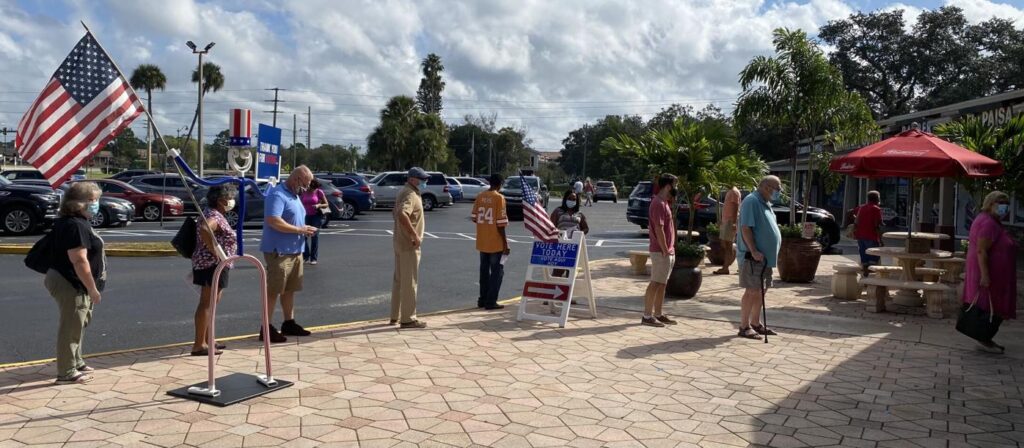OPINION: Federal voting law expansion will result in a stronger democracy

The U.S. House of Representatives passed a bill March 3 that could potentially expand voting rights for American citizens who often experience disparities in information access and transportation to the polls.
The For the People Act would provide citizens with better access to voting through decreasing the “influence of big money in politics” and strengthening “ethical rules of public servants,” according to the bill.
New rules are needed to reform the corrupt voting system that is currently in place. Impoverished citizens have disproportionate access to information about candidates, voting dates and methods due to the prioritization of citizens who are known to vote one way or the other.
Common voting barriers are lack of transportation to the polls, time in the day to vote and poor access to education on candidates, often experienced by impoverished citizens.
The For the People Act will also allow for automatic voter registration when citizens obtain a license from their state’s department of motor vehicles, which makes the process of participating in American elections easier and less time-consuming.
With this bill, each state will no longer require citizens to justify their need for a mail-in ballot, making access to ballots easier. This opens up voting to lower income citizens who do not have the time nor the financial means to go to the polls.
Income is positively correlated with the ability to vote. During the 2016 presidential election, those with an income of $150,000 and higher were about 30% more likely to vote than those who had an average income of $5,000, according to Econofact’s 2019 analysis of 2016 exit poll data.
This is due to citizens’ means of getting to the polls, such as by car or public transportation, and the time they have allotted to wait in the long voting lines. In the 2020 presidential election, some waited as long as eight hours, like voters had to do at a precinct in Georgia, according to The Atlanta Journal-Constitution. Most working Americans don’t have the ability to take eight hours out of their day to wait in a line to vote.
The For the People Act would also decrease the financial abilities of extravagant campaigns. Voter suppression has become a large issue in America, being spearheaded by campaigns who use their money to direct educational information to specific constituents.
Voter suppression is so prevalent in the U.S. that the American Civil Liberties Union (ACLU) was prompted to create a campaign in 2020 called Block the Vote to combat it.
“Across the U.S., too many politicians are passing measures making it harder to cast a ballot,” the ACLU’s website said. “The goal is to manipulate political outcomes, and the result is a severely compromised democracy that doesn’t reflect the will of the people.”
Voter registration knowledge will be improved through the bill by requiring annual reports by each state on registration statistics to analyze demographic trends in registration, adding a voter registration reminder to change of address forms and providing grants to states that promote the involvement of young people in election activities.
Republican opponents of the bill have also argued that the bill seems to be completely in favor of Democrats, because it would expand voting access to those who are more likely to “vote blue.”
“Democrats want to use their razor thin majority not to pass bills to earn voters’ trust, but to ensure they don’t lose more seats in the next election,” said House Minority Leader Kevin McCarthy during the House vote March 3.
This opposition is telling of Republican legislators’ voter suppression intentions. Democracy is based on the public choosing their leaders, and if the majority of people in America choose Democratic leaders, then Republicans have no right to attempt to suppress that.
If the For the People Act is passed, money will no longer be an obstacle for voter education and capability, nor will campaigners have the ability to directly suppress economic classes. The bill is needed in order to diminish the disparities the corrupt voting system currently creates among Americans.






